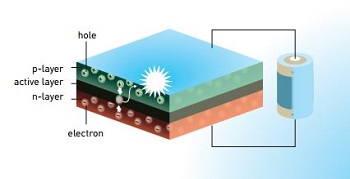The Royal Swedish Academy of Sciences has awarded the Nobel Prize in Physics for 2014 to the inventors of a new eco-friendly, energy-efficient light source – the blue light-emitting diode (LED).

The Nobel Laureates are Isamu Akasaki from Meijo University and Nagoya University, Hiroshi Amano from Nagoya University and Shuji Nakamura from the University of California, for proving that white light can be created in a new way using blue LEDs.
During the first half of the 1990s, the three researchers developed bright blue light beams using semiconductors, which became the basis for transforming lighting technology.
Although red and green diodes were available, blue light is paramount for white lamps to be created.
For nearly three decades, the blue LED has been a challenge to the scientific world. This radical invention has brought an end to the search for the much sought after blue LED.
White LED lamps not only provide bright white light but are also long-lasting and energy-efficient. It is possible for continued improvements over time in order to achieve better efficiency with superior luminous flux per unit of electrical input power.
Announcement of the Nobel Prize in Physics 2014
In order to qualify for this prestigious prize the invention must be greatly beneficial to mankind. This invention is extremely important as nearly one quarter of electricity consumption in the world today is for lighting.
The new light source has limited power requirements and can be powered by inexpensive solar power. It will help to save the Earth’s resources as well as help to reduce the consumption of materials as LEDs have a life of around 100,000 hours.
As a result, this invention will enhance the standard of living of more than 1.5 billion people around the world who currently struggle without proper lighting in their homes.